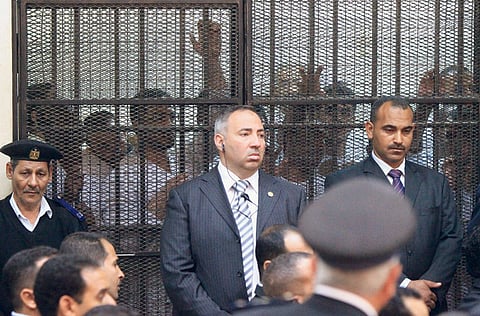Egypt verdicts political and unjust: Hezbollah
Nasrallah described as "political and unjust" the verdicts that Egypt passed on 26 men it convicted of planning attacks

Beirut: Hezbollah leader Sayyed Hassan Nasrallah described as "political and unjust" the verdicts that Egypt passed on 26 men it convicted of planning attacks and who it said were linked to the Shiite Muslim guerrilla group.
"The verdicts that were issued...against the mujahideen who were providing support for the mujahideen in Gaza are political and unjust...against these honourable mujahideen," Nasrallah was quoted as saying on Thursday on the group's website (www.moqawama.org)
Nasrallah said the issue would now be dealt with through political and diplomatic means. The website said Nasrallah made the remarks in an interview to be aired on Thursday on Kuwait's Al Rai television.
Egypt's emergency state security court sentenced the men - who included Lebanese, Palestinians, Egyptians and a Sudanese - to jail terms from six months to life, while some were convicted in absentia.
Last year, Nasrallah confirmed that one of the men, known as Sami Shehab, was a member of Hezbollah but denied the man had committed any crime.
He said Shehab, who was sentenced to a 15-year jail term, was only helping to equip Palestinians in their fight against Israel and that no more than 10 people had cooperated with him, rather than the 26 Egypt accused.
Egypt's relations with Hezbollah, a powerful political and military group that is now part of Lebanon's government, have been strained since the group called Cairo a "partner in crime" with Israel against Palestinians in the Gaza Strip.
Nasrallah said he would not allow the men to stay in jail.
"The case with Egypt is not closed. Certainly, we will not leave our brothers in the jails," he was quoted as saying. "We will seek, through political and diplomatic means, to deal with this issue."
Egypt, the only Arab state to share a border with Gaza, has said Nasrallah was trying to create chaos in the region to serve the interests of others, an apparent reference to Iran.
Cairo has long had strained relations with Tehran and the two countries do not have full diplomatic ties.



